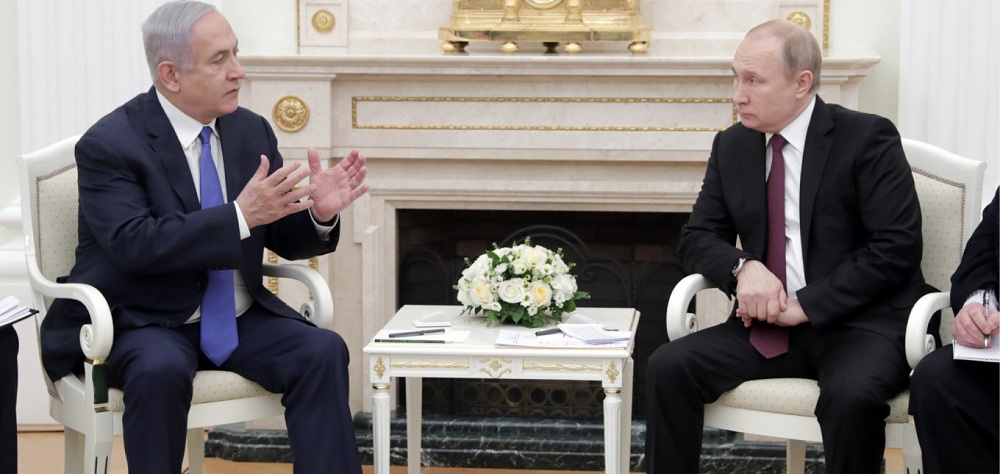Alwaght- During Israeli Prime Minister’s April 4 visit to Moscow, the Russian President Vladimir Putin said Russian military recovered and handed over to Tel Aviv the remains of the missing Israeli Sergeant Zachary Baumel who was killed in the battle of Sultan Yacoub in 1982 in the Syrian-Israeli confrontation in Lebanon. The move by the Russian leader has given rise to some questions: What has driven Putin to do so on the threshold of the Israeli parliamentary elections and while the region is living sensitive times? What are the consequences?
Suntan Yacoub battle’s significance for the Israelis
The Israeli regime launched a massive military operation in southern Lebanon in 1982 ostensibly to chase the Palestinian groups but really to foist a change on the Lebanese domestic conditions in favor of Tel Aviv. Calculating that holding the Golan Heights will enable it to weaken the links between the allied Syrian and Lebanese forces, Tel Aviv counted itself the winner of the war. But Syria, using very simple tactics and mainly drawing on anti-tank combat squads, managed to encircle and destroy many of the Israeli tanks. The tolls, according to the Israeli military whose figures ordinarily count way below the reality, were 500 Israeli troops, a number spread extreme horror across the occupied territories at the time.
Over the past few years, Netanyahu has been attempting to take advantage of that war. Two years ago, Tel Aviv received a tank also recovered by Russia. Netanyahu made a demand for its delivery as a memorial for the tank’s three killed personnel. Receiving the tank helped improve the PM’s image and created a sense among the public that Benjamin Netanyahu was victoriously making up for the heavy loss of the 37-year-ago battle. After getting the tank, he urged the Russian leader to also help find remains of Sergeant Zachary Baumel, the tank’s operator. By getting the body remains only five days before the elections, he sought to promote himself as a practical leader with the power to materialize his promises and presented himself the unmatched supporter of the Israeli military personnel and their families.
Russia’s dual policies
Russia is a multi-identity country with such ethnic groups as Slavs, Atlanticists, Eurasians, and nationalists. Its foreign policy has always been under the influence of these identities and tendencies and it defines its national interests and political approaches with an influence from them. Each time, surprise foreign policy changes take place in favor of one or more home groups, triggering criticism by the allies. Despite the fact that due to increase in oil prices since 2008, Putin made huge economic successes, the structural weakness in the nation’s economy pushes him to reverse the recent year’s economic setbacks that risk pushing Russia out of the circle of the developed countries.
In such a situation, the Russian leader tries to be present in Syria at the lowest costs and promote himself the strongman at home. Syria, a country grappling with a devastating war against terrorism since 2011, is a theater for a greedy campaign of influence among the EU, US, Arab states, and the Israeli regime. Putin seeks to use this situation for the biggest possible advantages for the lowest possible price. The Israelis have the strongest lobbying groups among others in the US Congress and administration. Putin, eyeing bolstered strategic relations with Netanyahu, seeks to use the interests of cooperation with Tel Aviv, including chances of links and benefits from AIPAC, the most powerful pro-Israeli lobby in the US.
Netanyahu's latest visit was the first to Moscow since US President Donald Trump signed into law a bill ordering the US to recognize the Israeli sovereignty over the occupied Syrian Golan Heights that drew ostensible Russian opposition. Putin stated that the Russian forces found remains of the Israeli sergeant in association with the Syrian military. The comment is understood as overt disloyalty to Damascus and implying the notion that Moscow even rewarded Tel Aviv after Golan Heights recognition by Washington as Israeli territory.
Syria’s Minister of Information Imad Abdullah Sarah, however, said that Syria was unaware of the body’s recovery and handover and that Israeli cooperation with the terrorist groups led to the finding. In general, Putin’s remarks and action were meant to boost Netanyahu position and showed insignificance of Golan Heights to Moscow policy.
Building trust prelude to regional sway
Since the occupation of Palestine by the Jews forced into migration from around the world, West Asia region has been unceasingly a setting for conflicts, tensions, and instability, mainly caused by the escalating actions of the Israeli regime. 70 years of Israeli history is a gallery of racist hostility to its neighbors. The founders of the Israeli regime dreamed of gaining control of a region stretching from the Nile River in Egypt to the Euphrates River in Iraq through a policy of fueling separatism in the regional countries. A set of policies over the past years served this dream, including declining to return Golan Heights to Syria, regular land seizures from Palestinians, encouraging former US President George W. Bush’s Iraq invasion through feeding false reports to the Congress, arming the takfiri terrorist groups to devastate Syria, and violations against southern Lebanon.
While the regional nations view the Israeli regime a destabilizing and hostile actor, realization of any Russian plan to gain a foothold in the regional countries is directly linked to bilateral trust and respect to their national interests. Otherwise, as the past years prove, Syria, for instance, has an array of alternative ways to protect its national interests and sovereignty, inducing entering new regional alliances. Continuation of such moves by Putin will usher in a chain of political mistakes that will risk Moscow’s loss of influence in Syria and even the whole region.



























